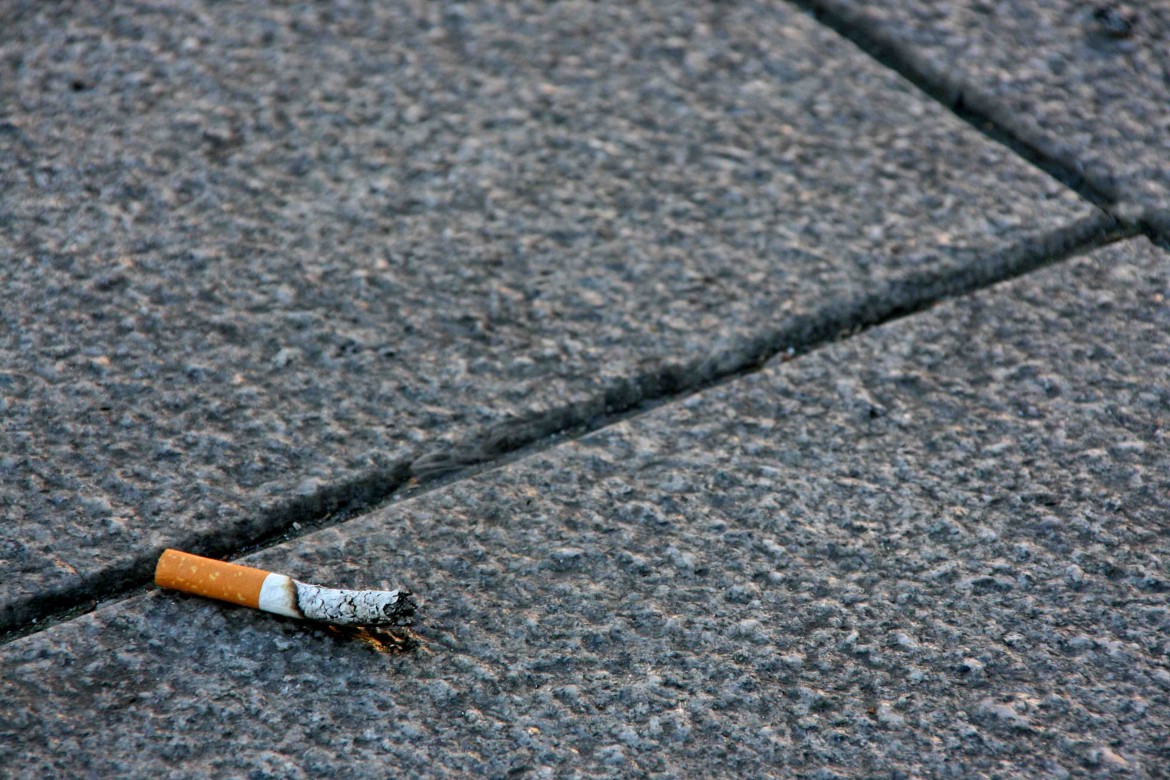 By Eric Freedman
By Eric Freedman
Littering can land your butt in deeper trouble — and not only in Arlo Guthrie’s classic rock song “Alice’s Restaurant Massacree.”
Just ask Daniel Iverson, who faces two drunken driving charges after a passenger tossed a cigarette butt out the window of his car within view of a Wisconsin State Patrol trooper.
Iverson got pulled over in La Crosse for littering and found himself facing more serious charges.
Wisconsin is the only state where a first-time drunken driving conviction is a civil offense rather than a crime. The maximum penalty is a $150 to $350 civil forfeiture — the equivalent of a fine for non-criminal offenses, such as first time drunken driving, in Wisconsin — a surcharge and a license suspension for six to nine months.
“It’s still a very big penalty in terms of repercussions for the individual,” said Iverson’s lawyer, Joseph Veneestra of La Crosse.
Littering carries a maximum $500 civil forfeiture, but most litterers pay only a small fraction of that.
The Wisconsin Supreme Court unanimously upheld the legality of the traffic stop and rejected Iverson’s argument that Trooper Michael Larsen had no authority to stop the Jeep because littering isn’t a crime or a traffic violation.
The decision reinstates two drunken driving charges against Iverson. La Crosse County District Attorney Tim Gruenke said the case now returns to Circuit Court for trial or a plea agreement.
 The Supreme Court released its decision on the 50th anniversary of the Nov. 25, 1965, Thanksgiving Day incident that gave birth to Guthrie’s satirical song and monologue “Alice’s Restaurant Massacre” and a film with the same title.
The Supreme Court released its decision on the 50th anniversary of the Nov. 25, 1965, Thanksgiving Day incident that gave birth to Guthrie’s satirical song and monologue “Alice’s Restaurant Massacre” and a film with the same title.
According to the decision, Larsen testified that he saw Iverson’s silver Jeep “drift within its lane toward the centerline and back,” then stop at two flashing yellow lights although there was no other traffic at either intersection. He then saw a cigarette butt “being thrown from the passenger side of the vehicle and scattering ashes across the right lane.”
Iverson told Larsen that he was unaware of the littering, and passenger Alex Paulson “admitted responsibility and stated that he had not known that the action was illegal,” according to the court decision. Larsen didn’t cite either of the men for littering.
Writing for the Supreme Court, Justice Annette Ziegler said, “Based on his observations, the officer in this case had probable cause to believe that an occupant of Iverson’s vehicle had violated the law by throwing a cigarette butt onto the highway.”
Iverson pleaded not guilty to drunken driving and filed a motion to suppress evidence obtained during the traffic stop. A La Crosse County judge and the Court of Appeals agreed with him that the stop was invalid and dismissed the criminal case.
But in the new ruling, the Supreme Court said, “It is hardly absurd for a statute entitled ‘Littering’ to prohibit disposal of cigarette butts onto the state’s roads.
“In fact, cigarette butt litter is a widely recognized problem,” the court said. “Cigarette butt litter pollutes waterways, costs millions of dollars in clean-up costs and spoils the appearance of otherwise attractive surroundings.”
butt litter pollutes waterways, costs millions of dollars in clean-up costs and spoils the appearance of otherwise attractive surroundings.”
The court quoted an affidavit from Iverson’s lawyer saying that “I have never in my legal experience had a call from or represented someone who was cited for littering or any other offense due to the throwing of a cigarette butt. In fact, I have witnessed hundreds of cigarette butts on the grounds outside our office, along the streets near our office and outside of taverns and other businesses located in downtown La Crosse and have never heard of anyone being cited for such disposal of cigarette butts.”
However, the Supreme Court was unimpressed by that argument, saying, “If the image of masses of cigarette butts strewn throughout the streets of a Wisconsin city is meant to suggest that the disposal of cigarette butts along highways is somehow a [minimal] offense, it fails to persuade. The cumulative effect of improper waste disposal is a demonstrable example of why littering is problematic.”
The court also noted the prosecution argument that “littering creates hazards for other motorists and that discarded lit cigarettes in particular can cause brush, grass and forest fires leading to property damage.”
“Alice’s Restaurant Massacre” is based on a 1965 incident when 18-year-old Guthrie was visiting Alice and Ray Brock who owned a restaurant named the Back Room in Great Barrington, Massachusetts.
Guthrie and a friend agreed to help their hosts by taking a load of trash to the local dump.
But they discovered it closed for the holiday, so they drove to nearby Stockbridge and illegally dumped the trash there.
As the song, first performed in 1967, tells the story, police arrested Guthrie and his friend for littering. They spent the night in jail, pleaded guilty, paid $25 fines and cleaned up the illegally dumped trash.
Supreme Court Clerk Diane Fremgen said the timing of the decision’s release on the incident’s anniversary was a coincidence.
Click here for the trailer of the PBS special marking the 50th anniversary of the incident.
